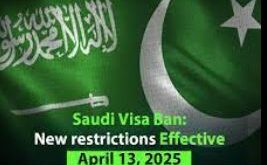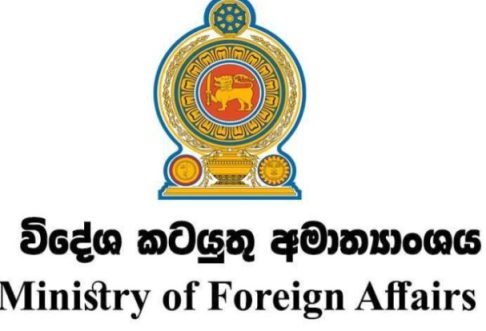 With tongue firmly entrenched in his cheek, an Arab diplomat recounts an Israeli cabinet meeting interrupted by an aide rushing in with the latest statistics on the state of the economy.
With tongue firmly entrenched in his cheek, an Arab diplomat recounts an Israeli cabinet meeting interrupted by an aide rushing in with the latest statistics on the state of the economy.
The crops were down, growth was low, reserves were minimal and inflation was high, he announced, portraying a rather gloomy economic picture.
Momentarily, the prime minister seemed flustered by the news – until he realised the aide was really referring to the state of the Israeli economy.
Breathing a sigh of relief, he joyfully exclaimed: "Thank God, for a moment I thought you were referring to the American economy" – and went on with the business of the day, totally unfazed.
The apocryphal story, doing the rounds at the United Nations, reveals the reality of Israeli life: its very existence has depended largely on the unrestrained political, economic and military support of the United States.
After more than a decade of lobbying, Israel won a key diplomatic victory Monday by gaining admission to the Organisation for Economic Cooperation and Development (OECD).
But could Israel have joined the OECD without the billions of dollars in U.S. aid and outright grants, which helped propel the Jewish state into the ranks of Western industrial nations?
The Paris-based organisation, long described as an exclusive club of rich nations, also invited Estonia and Slovenia to join its privileged ranks, pushing its total membership to 34.
OECD's current members range from Austria, Australia, Belgium, and Canada to France, Germany, Italy, Japan, South Korea, Britain and the United States.
All three new members will be inducted at a special ceremony during the annual meeting of the OECD Council, chaired by Italian Prime Minister Silvio Berlusconi, in Paris on May 27.
The OECD decided to admit Israel into its ranks despite accusations of human rights violations and war crimes by a U.N. commission – specifically during the war against Gaza in December 2008.
Asked if Israel's entry will have an impact on how the politically and economically powerful European Union (EU) responds to human rights violations in the occupied territories, Nadia Hijab, an independent analyst and a senior fellow at the Institute for Palestine Studies, told IPS she wasn't sure how it will play out with the 27 EU states.
But Hijab pointed out that from a human rights perspective, the OECD has completely ignored its own Road Map for Israel's accession, which states that Israel has to demonstrate a commitment to pluralist democracy based on the rule of law.
Indeed, only a democracy can join the OECD, she added.
But human rights organisations have accused Israel of violating most of the basic principles of democracy, including civil and political rights, freedom of the press and fundamental rights of people under occupation.
A 17-point memo to the OECD by the worldwide Palestinian coalition BNC (the Boycott, Divestment and Sanctions National Committee) listed the many ways in which Israel does not uphold the rule of law at home or abroad.
In a detailed critique published in Agence Global, Hijab points out that the EU's planned upgrade of relations with Israel was put on hold in the wake of Israel's Gaza attack.
She said intensive lobbying by several churches and non-governmental organisations (NGOs), including three Israeli human rights organisations, B'Tselem, HaMoked and Physicians for Human Rights, helped prevent it from being acted on – until this week.
Writing on 'U.S. Foreign Aid to Israel' for the U.S. Congressional Research Service (CRS) last December, Jeremy Sharp, a specialist in Middle Eastern affairs, says "Israel is the largest cumulative recipient of U.S. foreign assistance since World War II." Since 1985, the United States has provided over 3.0 billion dollars in outright annual grants – with no payback obligation – to Israel. Of this, about 1.9 billion dollars have been earmarked as military aid and 1.2 billion dollars as economic aid.
Virtually all of the U.S. equipment in the Israeli military inventory has been purchased out of U.S. funds.
For many years, Sharp points out, "U.S. economic aid helped subsidise a lacklustre Israeli economy, though since the rapid expansion of Israel's hi-tech sector in the 1990s (sparked partially by U.S.-Israeli scientific cooperation), Israel is now considered a fully industrialised nation with an economy on par with some Western European countries."
Consequently, Israel and the United States agreed to gradually phase out economic grant aid to Tel Aviv.
According to an agreement reached under former U.S. President George W. Bush in August 2007, and to compensate for the loss of economic aid, there will be incremental annual increases in U.S. military grants to Israel, reaching 3.0 billion dollars by 2012.
The administration of President Barack Obama will dole out about 2.8 billion dollars in military grants to Israel in 2010.
And, Sharp says, U.S. military aid has "helped transform Israel's armed forces into one of the most technologically sophisticated militaries in the world."
Despite its admission to the OECD, Israel will continue to depend on strong political and military support from the United States. And more so at the United Nations, where Washington has continued to shield Israel from Security Council sanctions for war crimes and human rights violations.
Stephen Zunes, professor of politics andinternational studies and chair of the Middle Eastern Studies Programme at the University of San Francisco, told IPS there is no way that Israel could get away with its widespread and systematic violations of international law were it not effectively shielded by the U.S. veto power in the Security Council.
"Israel is not inherently worse than other countries, it's just that their government has so few constraints upon its behaviour," he said.
But thanks to this superpower umbrella which protects the Israelis from sanctions and other consequences of their actions, there is no deterrent preventing them from running roughshod over international legal norms, Zunes added.
This is not fundamentally different than the threat of a French veto preventing the Security Council from enforcing its resolutions regarding the Moroccan occupation of Western Sahara, he added.
Similarly, for decades, Britain and the United States blocked any decisive U.N. action regarding Indonesia's occupation of East Timor.
"The failure to force Israel to end its occupation, colonisation and repression of its neighbours, therefore, is not simply the fault of a supposedly all-powerful Zionist lobby," Zunes said.
Rather, it is yet another sad chapter in the longstanding tradition of great powers hypocritically aiding and abetting the very kinds of illegitimate policies by their allies for which they would demand strict international sanctions, he argued.
Or worse, if they were being carried out by a regime deemed less friendly to their interests, Zunes declared.
Post Disclaimer | Support Us
Support Us
The sailanmuslim.com web site entirely supported by individual donors and well wishers. If you regularly visit this site and wish to show your appreciation, or if you wish to see further development of sailanmuslim.com, please donate us
IMPORTANT : All content hosted on sailanmuslim.com is solely for non-commercial purposes and with the permission of original copyright holders. Any other use of the hosted content, such as for financial gain, requires express approval from the copyright owners.
 Sri lanka Muslims Web Portal Sri Lanka Muslims News Center
Sri lanka Muslims Web Portal Sri Lanka Muslims News Center
 Donate
Donate


